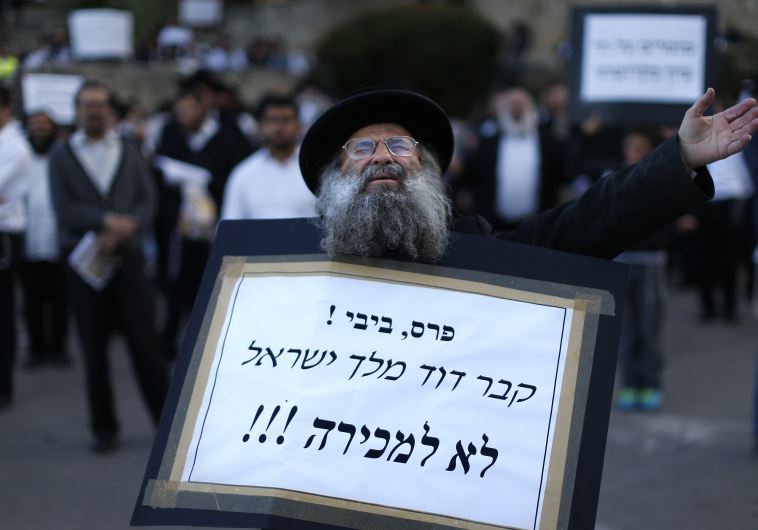Police remove protestors attempting to block Christian worshipers at King David’s tomb
The protest happened one day after hundreds of Jewish protesters attempted to prevent another group of Christians from entering the complex.
 Protest King David's Tomb (The Tomb of King David of Israel is not for sale)(photo credit: THOMAS COEX / AFP)
Protest King David's Tomb (The Tomb of King David of Israel is not for sale)(photo credit: THOMAS COEX / AFP)